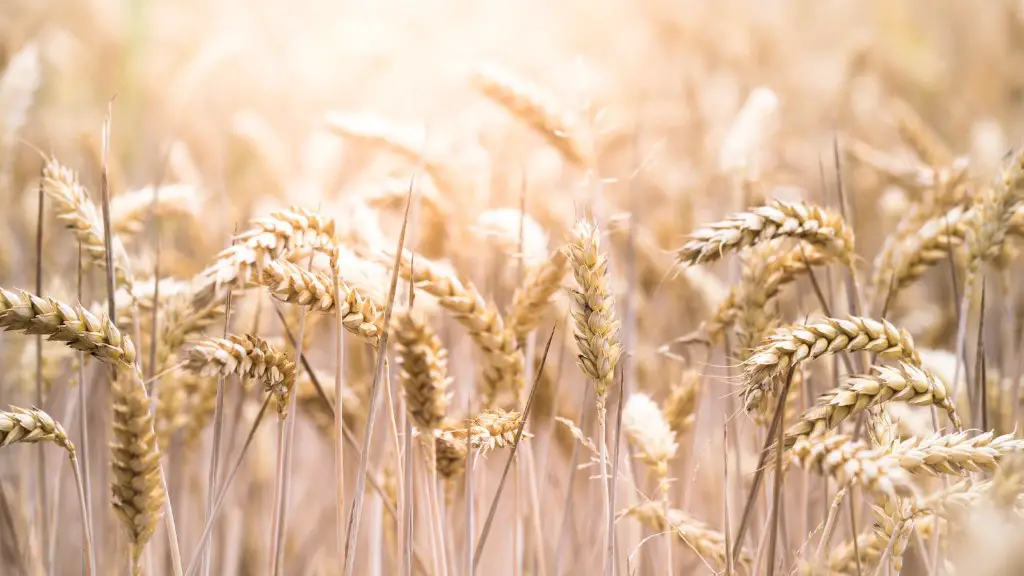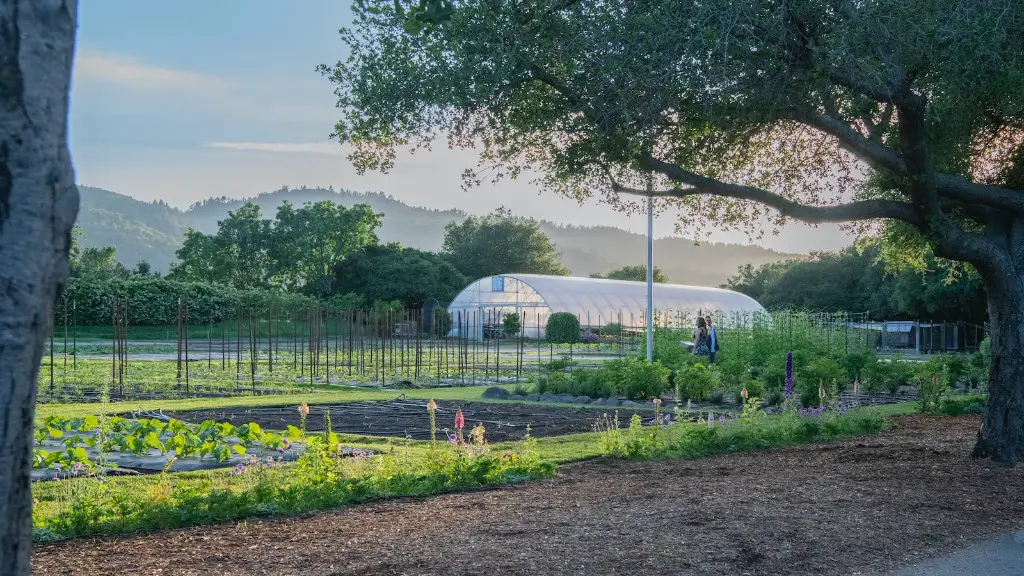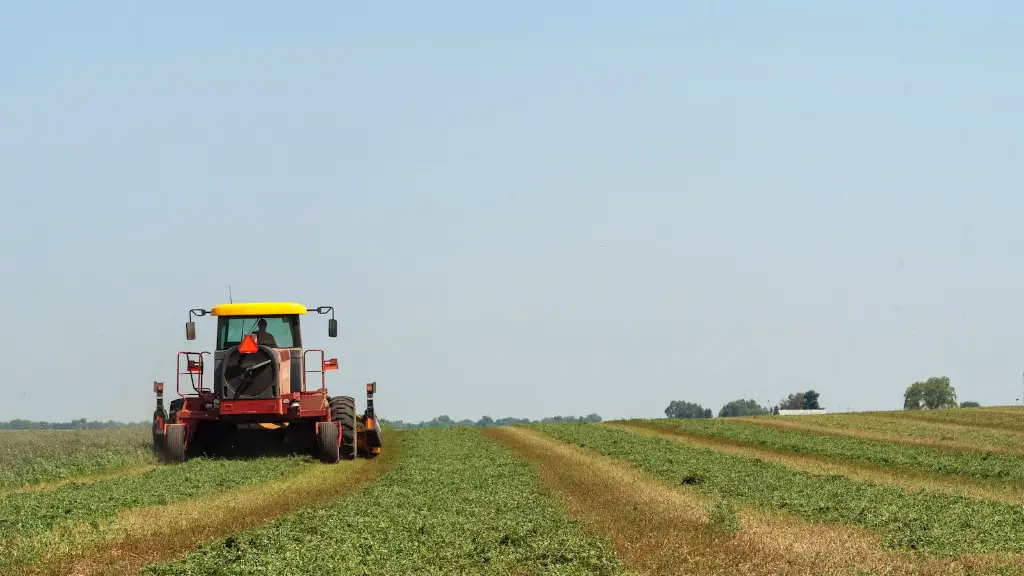The outbreak of Covid-19 had a significant impact on the agricultural sector. The virus caused a decrease in demand for agricultural products as well as disruptions in the supply chain. Farmers were forced to grapple with a decrease in demand, as well as higher prices for inputs. In addition, the virus caused labor shortages as workers were forced to stay home. The pandemic has had a major impact on the agricultural sector and has led to changes in the way that farmers do business.
The outbreak of Covid-19 had a profound effect on the agricultural sector. The lockdown measures implemented to contain the pandemic led to disruptions in the supply chain and labor shortages, resulting in reduced production and exports. The decline in demand for food also put pressure on prices. The overall impact of Covid-19 on agriculture was negative, although some sectors fared better than others.
How did Covid-19 affect agricultural production?
The coronavirus (COVID-19) pandemic has had a significant impact on the US economy, including the farm sector and farm households. Farm businesses have experienced disruptions to production because of lowered availability of labor and other inputs, and output prices have been affected by changes in demand for commodities in certain market segments. The pandemic has also led to increased uncertainty and risk for farm businesses, which may result in reduced investment and production in the coming years.
The COVID-19 pandemic has caused a lot of volatility in the prices of imports, exports, producers, and consumers. This is because of the demand shocks and problems with supply chains. Meat, fish, dairy, and eggs have been especially affected by the shifting economy.
How COVID-19 affects agriculture and food supply
The outbreak of COVID-19 has resulted in a number of changes in the food supply chain, including the movement restrictions of workers, changes in demand of consumers, closure of food production facilities, and restricted food trade policies. These changes have placed significant financial pressures on the food supply chain. In order to ensure the continued functioning of the food supply chain, governments should facilitate the movement of workers and agri-food products.
Covid-19 has placed unprecedented stresses on food supply chains. Farms have faced bottlenecks for some inputs, notably seasonal labour. Processing has been disrupted by labour shortages and shutdowns, especially in meat processing. Air freight, important for fruits and vegetables, has been severely disrupted.
What did COVID do to the economy?
The COVID-19 pandemic has had a profound impact on the world economy, leading to the largest global economic crisis in more than a century. The crisis has exacerbated inequality within and across countries, with the poorest and most vulnerable people bearing the brunt of the economic and social impacts. The pandemic has also highlighted the need for more inclusive and equitable economic policies and systems that work for everyone, not just the wealthiest.
Covid-19 has had a significant impact on food insecurity in the United States. About 38% of adults have reported an increase in food insecurity since the pandemic began. This is likely to increase as the economic crisis continues and more people are unable to work. food insecurity can have serious consequences, including poor health, reduced educational attainment, and increased crime. It is important to address this issue as soon as possible to help reduce the negative impacts of the pandemic.
What industry was most affected by COVID?
Sharon Stang is an industry expert with over 20 years of experience in the utilities, finance, and real estate industries. She has a strong track record in managing companies and enterprises and is well-respected for her work in these industries.
The coronavirus pandemic has had a major impact on capital expenditures for companies around the world. In 2020, 60 percent of companies canceled, 97 percent postponed, 82 percent decreased, and 15 percent increased some of their budgeted capital expenditures. A total of 17 percent of companies introduced new unbudgeted capital expenditures. These changes are likely to continue in the coming year as companies adapt to the new reality of the pandemic.
How does COVID-19 affect the environment
The lockdown measures have had a positive impact on the environment due to the shut down of industries, factories, construction, schools and offices, and reduced vehicular activity. People are less likely to commute all over the world due to travel bans, cancelled public events and tourism, which has resulted in less pollution and happier animals.
The outbreak of COVID-19 has had a significant impact on different sectors of the economy. This note outlines the sectoral impact, responses and recommendations in relation to the port sector, meat processing sector, construction sector, care workers providing home or institution-based care, and urban passenger transport services.
In the port sector, there has been a decline in the demand for maritime services due to the reduction in global trade. This has led to a reduction in port activity and employment. The decline in port activity has also had a knock-on effect on the supply chain, affecting businesses that rely on maritime transport. To mitigate the impact of COVID-19, port authorities have implemented a range of measures, including providing financial assistance to businesses, relaxing environmental regulations, and introducing health and safety measures.
The meat processing sector has also been significantly affected by COVID-19. The outbreak of the virus has led to a decline in demand for meat products, as well as disruptions to the supply chain. This has resulted in plant closures and job losses in the sector. To mitigate the impact of COVID-19, the government has introduced a range of measures, including financial assistance for businesses and workers, and introduced health and safety measures.
The construction
What is the biggest impact of COVID-19 in our society?
The coronavirus pandemic has had a profound impact on all aspects of society. Businesses have closed, leading to the loss of millions of jobs. Girls have been forced to drop out of school, putting them at risk of adolescent pregnancy, child marriage, and violence. The pandemic has also led to a rise in mental health problems and domestic violence.
The services sector has been one of the big beneficiaries of the lifting of Covid curbs. Economists said that a positive trend was the rebound in growth on a sequential (quarter-on-quarter) basis. The trade, hotels, transport, communication and services related to broadcasting posted robust growth during the three-month period at 147%.
What industries were not impacted by COVID
These are the two industries least affected by COVID-19. Both have been able to continue operating relatively normally, despite the pandemic. This is likely due to the fact that these industries are less reliant on physical contact and face-to-face interactions.
The survey found that across the full sample, 43% of businesses had temporarily closed. Nearly all of these closures were due to COVID-19. Respondents that had temporarily closed largely pointed to reductions in demand and employee health concerns as the reasons for closure, with disruptions in the supply chain being less of a factor.
How did the pandemic negatively affect your business?
The partial lockdown had a significant impact on firms, with many businesses forced to close. Even those firms not directly affected by the lockdown measures found themselves with fewer customers and orders. Firms also had increased difficulties in sourcing inputs and found it difficult to cover revenue shortfalls. These impacts have been felt across the economy, and have led to a deterioration in the business environment.
COVID-19 is having a devastating impact on the environment due to its rapid spread. The virus can land on surfaces after an infected person coughs, sneezes or talks, and can survive on surfaces for about nine days. This means that the virus can quickly spread through an area, causing large numbers of people to become sick.
Conclusion
Covid-19 has had a significant impact on the agriculture industry. The pandemic has led to a decrease in demand for agricultural products, as well as a shortage of labor. In addition, the closure of borders has prevented the movement of agricultural products and inputs. This has led to a decrease in production and an increase in prices for many agricultural products.
The coronavirus pandemic has had a significant impact on the agriculture industry. The outbreak of the virus led to a decrease in demand for agricultural products, as well as disruptions in the supply chain. These factors have combined to create significant challenges for farmers and other agriculture workers. In addition, the pandemic has led to an increase in food prices, which has put additional pressure on those who are already struggling to make ends meet. Despite these challenges, the agriculture industry has shown remarkable resilience in the face of adversity, and farmers have continues to provide food for the world during this difficult time.





